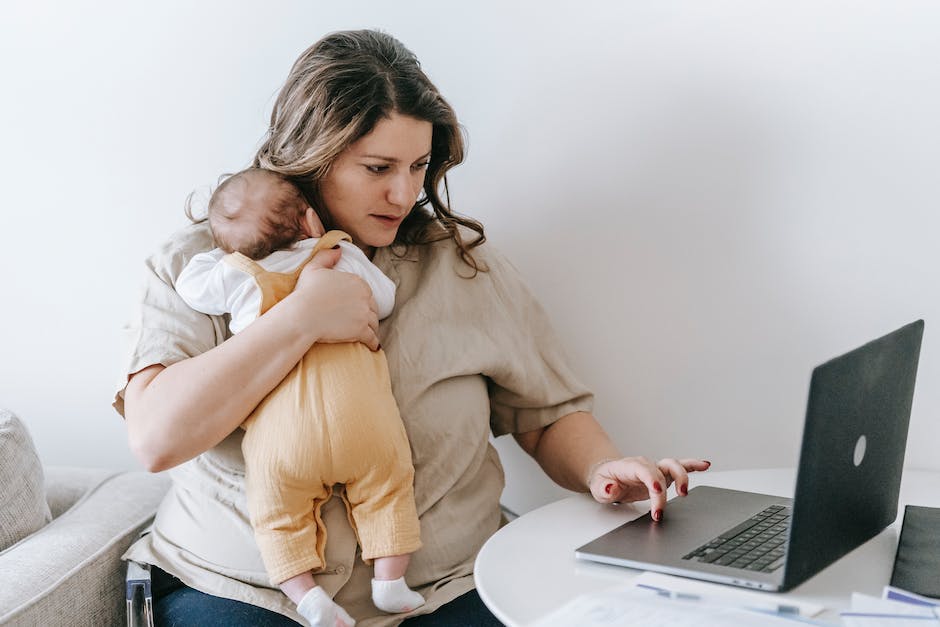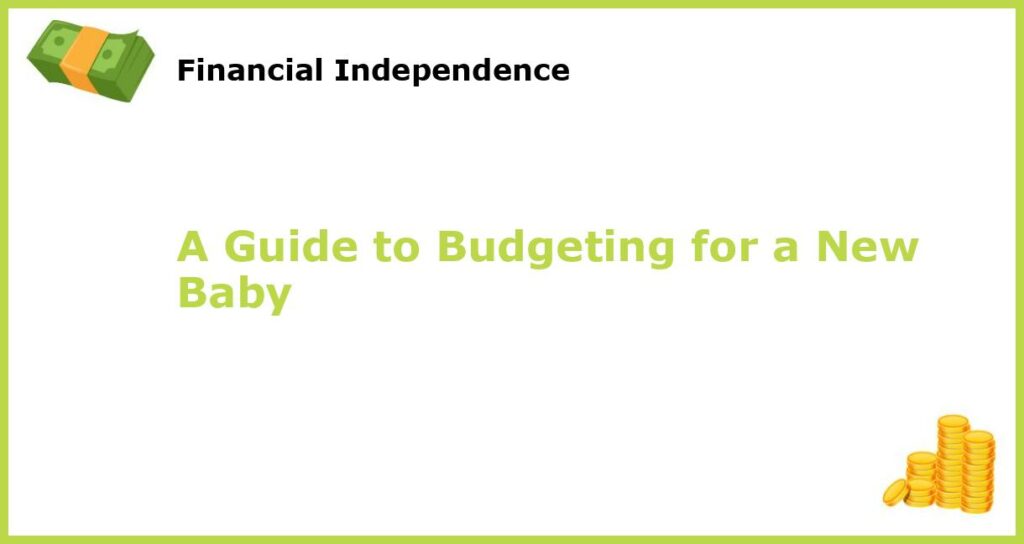Bringing a new baby into the world is a truly monumental event in a person’s life. However, one cannot ignore the fact that it can be quite expensive, with the costs associated with caring for a baby rapidly adding up. That’s why creating a budget for a new baby is so important. From diapers to daycare, the expenses involved can cause needless stress and anxiety for new parents, especially those who are on a tight budget. In this guide, we’ll walk you through key factors to consider as you set about creating a budget plan that works for you.
1. The Importance of Budgeting for a New Baby

The arrival of a new baby is indeed an exciting and emotional experience. However, it’s no secret that it comes with a steep financial cost. It’s crucial to plan for the arrival of your new baby in advance to avoid unnecessary stressors that might come with unexpected expenses. Some of the financial responsibilities of having a baby include medical bills, basic necessities, such as clothing, a place to sleep, baby foods and vaccines, among others. By planning ahead, you can ensure a stress-free experience and make that special moment when your little bundle of joy finally arrives all the more magical.
2. Start Planning Early

It is crucial to start planning for the arrival of a new baby as soon as possible. The earlier you start, the better prepared you’ll be. Start by putting together an extensive list of everything you’ll need once the baby arrives, including but not limited to furniture, clothing, medical expenses, and child care. Research the prices of the necessities, and factor in potential miscellaneous expenses. By creating a detailed budget early on, you’re better placed to see where you can cut costs and identify places where you need to allocate more resources.
3. Make a List of Essential Items

A new baby requires a lot of gear, but not everything is essential. Before setting out to shop for baby items, make a list of everything that the baby will need, including baby clothes, a baby bag, car seat, stroller, and diapers. Separating the items you need from those that aren’t as important will help you set your priorities straight and prevent you from overspending on insignificant, non-essential items.
4. Look for Sales and Discounts

You don’t need to pay top dollar for baby items when there are bountiful sales and discounts available. Visit online retailers like Amazon and Diapers.com for discounted prices on necessary items, including diapers, wipes and other baby essentials. You could also take advantage of promotions on costly items like car seats and strollers by shopping during sales events or using your coupons. Don’t forget to compare prices across various merchants and stores.
5. Consider Second-Hand Items

The majority of baby items are used for a short time because babies grow and change rapidly. One great way to save money is to consider purchasing second-hand baby items, such as clothes, toys, and furniture. When shopping for used baby items, be sure to inspect everything carefully to ensure that it is safe to use and in good condition. It’s important to note that some items such as car seats are not recommended to be purchased second-hand as safety standards may have changed, so be sure to check safety regulations before making a purchase.
6. Don’t Forget About Childcare

Childcare costs can be some of the most significant expenses for new parents. Start researching different daycare options, including in-home babysitters and daycare centers, to find the most viable option for your family. As a workaround to this, it’s always useful to explore sharing a nanny or babysitter with other families to cut down costs. When you prepare your budget, be sure to factor in the costs associated with finding the right childcare facility for your baby.
7. Set Realistic Expectations

When creating your budget, it’s essential to have grounded expectations of what your financial capabilities are realistically. Although it’s acceptable to want the best things for your child, it’s not always necessary to purchase the latest and greatest items on the market. Determine what you can afford, and then focus on meeting those needs instead of trying to keep up with others or creating a picture-perfect nursery.
8. Be Flexible
It’s always useful to allow for a degree of flexibility in your baby budget planning. You may find that unexpected expenses will crop up, and it’s important to have some wiggle room in your budget. You might also realize that, as your baby grows, their needs will change, and your budget will need to be adjusted accordingly. So, do your best to make your budget plan as comprehensive as you can but also be prepared to adjust it as and when necessary.
9. Enjoy the Journey
Budgeting, while a necessary part of the process, can be stressful. However, always remember to appreciate this special moment between you and your little one. It would be wise not to allow the budget to become the focal point of your excitement. Your baby won’t care if they don’t have the latest and the most trendy new items on the market. All they need is your love, attention, and a healthy, happy home. So, don’t hesitate to relish every moment of your baby’s journey, even if your budget isn’t perfect.
10. Conclusion
Creating a baby budget might seem overwhelming, but with these handy tips, it can be a relatively straightforward and enjoyable process. By starting early, focusing on important items, searching for sales, considering second-hand items, and being open to change, you can create a budget that works for your family and enables you to focus on what genuinely matters: their new little member of the family.







